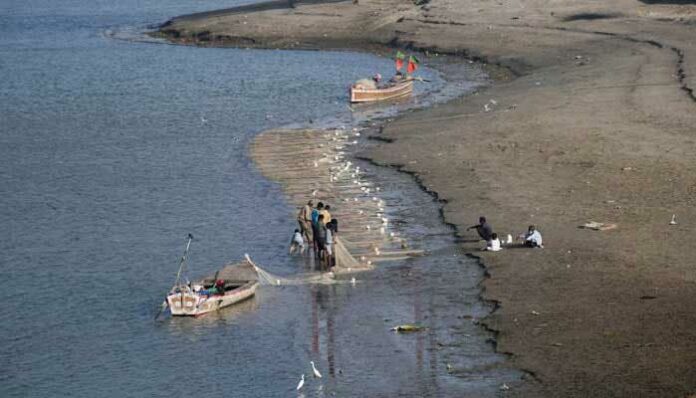How Sharing River Water Affects Peace Around the World
To avoid conflicts, it’s important for countries to work together and decide how to use natural resources. These resources should only be used according to agreements that everyone has accepted, so that peace and fairness can be maintained.
Sharing nature’s resources fairly is important for peace between countries. On Monday, a UN spokesperson said this while reacting to a strong statement from a senior Indian minister, who said India will not return to the Indus Waters Treaty with Pakistan. The UN called for both sides to follow agreed rules to avoid future conflict. This is crucial to maintaining the water deal.
After a deadly incident in Pahalgam, where 26 people lost their lives in what India called a terror attack, India decided to step back from the Indus Waters Treaty made in 1960. This treaty was created to manage how the Indus River is shared, but now India has put its role in the agreement on hold.
Under a long-standing agreement, Pakistan received water from rivers that start in India. These rivers helped nearly 80% of Pakistan’s farmland stay watered. This flow of water was an important part of the treaty. The suspension of the treaty directly impacts the water deal between the two countries.
Even after Pakistan denied any link to the Pahalgam attack, tensions remained high. A truce, supported by U.S. President Donald Trump, helped stop the worst clashes in years between the two neighbors. Still, the treaty has not been put back into action.
How Government Changes Could Affect the Water Sharing Deal
Speaking to the media on Saturday, Home Minister Amit Shah explained that India is planning to use a canal to send water to Rajasthan instead of letting it flow into Pakistan. He said this step is part of India’s plan to better use its own water resources. He firmly stated that the deal is finished and there is no chance it will come back. India’s new stance signals a significant shift in the existing water deal.
At a press meeting in New York, a UN spokesperson, Stephane Dujarric, was asked about what the Indian minister said. He replied that he hadn’t seen that exact comment, but said clearly that countries should only use shared natural resources based on deals they both accept. This principle applies to the water deal as well.
Shah’s comment about ending the Indus Waters Treaty caused strong criticism from Pakistan. The country said it clearly goes against global laws. They also warned that such actions could create serious trouble later on.
While speaking about Shah’s remarks, Foreign Office spokesperson Shafqat Ali Khan said the comments ignored the value of global agreements. He said such disregard cannot be taken lightly. Ignoring the water deal risks escalating tensions between both nations.
Addressing the National Assembly on Monday, Bilawal Bhutto-Zardari spoke strongly against India’s actions. He said that India’s decision to stop the water treaty is illegal and warned that blocking Pakistan’s water supply goes against United Nations rules. He urged the world to recognize Pakistan’s position on this issue.
Speaking firmly about the situation, he warned that if India acts on its threats, Pakistan could face another war. He also pointed out that Pakistan’s air force has beaten India before and is prepared to do it again if necessary.
For authentic news and the latest updates, stay connected with: DumdaarPoint.com

